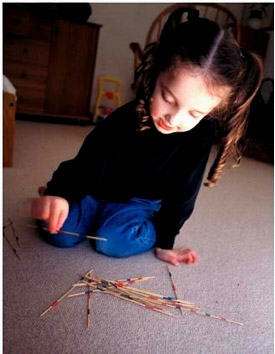
Researchers at the new Culture, Cognition, and Development Laboratory at Rutgers University-Camden say they are following behavioral inquiries that will offer a deeper understanding of how children and adults perceive the world around them.
Assistant professor of psychology Sean Duffy said, “How our minds develop as an interconnected part of our cultural worlds, from childhood throughout our adult lives, is infinitely complex.” In one such study, Duffy offers evidence that children as young as five years of age depend on statistical principles in order to increase the accuracy of their memories.
“For example, in remembering the height of a person you met last year, you combine inexact information about how tall the person actually was with information from the category of which that person is a member,” he said.
“The statistical computations behind this are extremely complicated, and yet children as young as five show evidence that they use categories in the same way as adults, suggesting that this ability occurs at the start of life,” maintained Duffy.
The research appeared in the journal Developmental Science.
